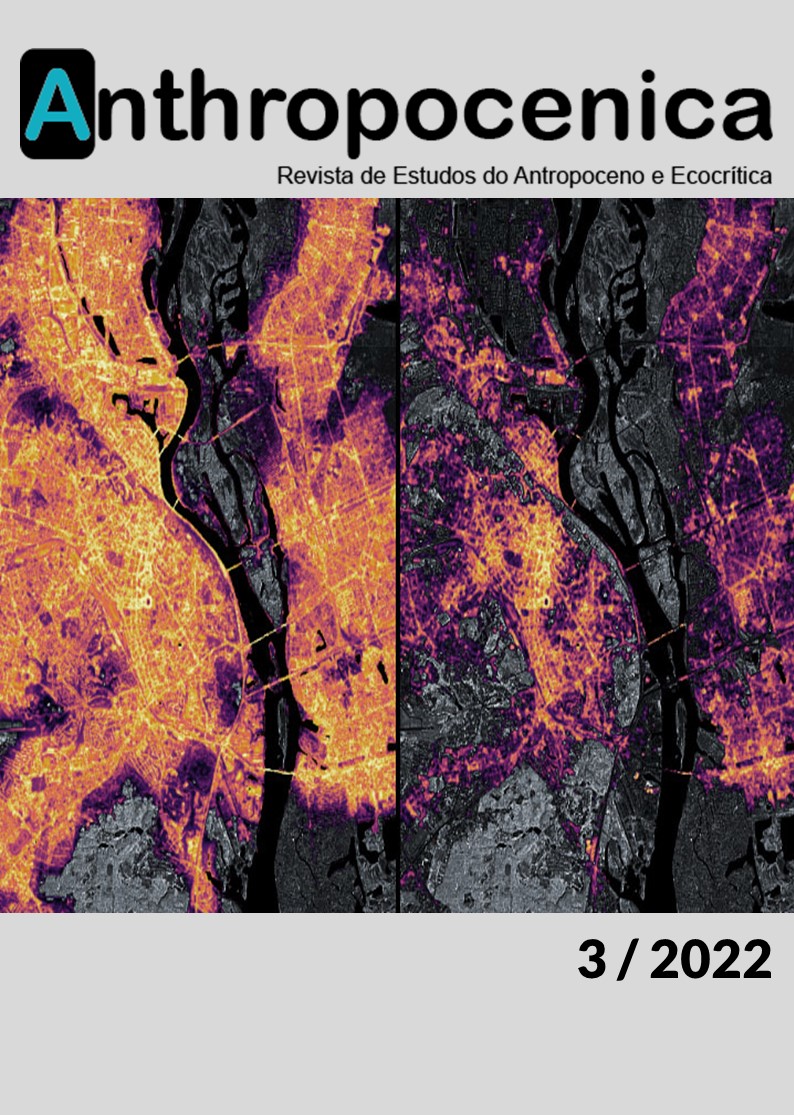Anthropocene, Technocene and the Problem of Philosophy of Education
DOI:
https://doi.org/10.21814/anthropocenica.4000Palavras-chave:
Anthropocene – technology – philosophy of education – world – Fink – NietzscheResumo
O termo Antropoceno começou a aparecer com mais frequência no discurso científico há mais de 20 anos. Foi uma tentativa de aproximar-se da compreensão da profundidade e gravidade do impacto do homem e suas atividades no planeta Terra, com a intenção de, no futuro, mitigar esses efeitos e evitar um possível colapso ambiental global catastrófico, que poderia envolver o colapso da própria civilização. No entanto, até ao momento, a nossa abordagem do mundo praticamente não mudou. Depois da pandemia veio a ameaça de um conflito mundial, uma guerra nuclear. Como o nosso saber científico parece impotente, mesmo o conhecimento científico mais óbvio e assustador não pode de alguma forma mudar o curso da sociedade global. Queremos pensar essa situação a partir da perspectiva da filosofia cosmológica da educação. O seu motivo central é a revelação filosófica do fundamento ontológico original de nossa humanidade, que é o mundo, o cosmos. É um confronto direto com a “educação de mercado” até agora prevalecente, que serve para manter e consolidar os esquemas de poder da política do capital.
Downloads
Referências
Bourdieu, P. (1979). Algeria 1960. Cambridge: Cambridge University Press.
Bourdieu, P. (1984). Distinction. London: Routledge.
Bourdieu, P. (1990). The Love of Art. Stanford: Stanford University Press.
Bourdieu, P, and Wacquant, L.J.D. (1992). An Invitation to Reflexive Sociology. Cambridge: Polity Press.
Bourdieu, P. (1994). Academic Discourse. Stanford: Stanford University Press.
Bourdieu, P. (2000). Pascalian Meditations. Cambridge: Polity Press.
Bourdieu, P. (1999). The Weight of the World. Cambridge: Polity Press.
Bowles, S. and Choi, J-K. (2019). The Neolithic Agricultural Revolution and the Origins of Private Property. Journal of Political Economy, 127(5): pp. 2186-2228.
Crutzen, P. and Stoermer, E. (2000). The ‘Anthropocene’. IGBP Newsletter, 41: pp. 17-18.
Dědečková, E. (2018). Kozmologická filozofia výchovy Eugena Finka [The Cosmological Philosophy of Education by Eugen Fink]. Praha: PedF UK.
Fink, E. (1974). Traktat über die Gewalt des Menschen. Frankfurt am Main: Vittorio Klostermann.
Fink, E. (1979). Nietzsches Philosophie, Stuttgart: Kohlhammer.
Fink, E. (1987). Existenz und Coexistenz. Grundprobleme der menschlichen Gemeinschaft. Franz-A. Schwarz (Eds.). Würzburg: Königshausen und Neumann.
Fink, E. (1992). Natur, Freiheit, Welt. Würzburg: Königshausen und Neumann.
Fink, E. (2003). Nietzsche’s Philosophy. Translated by G. Richter. London/New York: Continuum.
Fink, E. (2010). Spiel als Weltsymbol. In: Cathrin Nielsen and Hans Rainer Sepp (Eds.), Gesamtausgabe, vol. 7, Freiburg: Alber, 2010.
Fink, E. (2016). Play as Symbol of the World and Other Writings. Translated by Ian A. Moore and Christopher Turner. Bloomington/Indianapolis: Indiana University Press.
Gehlen, A. (2016). Urmensch und Spätkultur: Philosophische Ergebnisse und Aussagen. Frankfurt am Main: Vittorio Klostermann.
Charlesworth, S. (1999). A Phenomenology of Working Class Experience. Cambridge: Cambridge University Press.
Charlesworth, S. (2019). The Truth is Out There: ‘Educated fo’ Bollocks. Uni’s Just Institutional Daylight Robbery’. Universities in Crisis? What’s New? In: Leonidas Donskis, Ida Sabelis, Frans Kamsteeg and Harry Wels (Eds.), Academia in crisis, pp. 169-194. Leiden: Brill.
Kaplan, M. (2021, December 22). After death threats, Dr. Alina Chan doubles down onn COVID-19 origin theory. New York Post. https://nypost.com/2021/12/22/dr-alina-chan-doubles-down-on-covid-19-origin-theory/.
Lumila, M. (2020). Technische Bildung als eine weltoffene und für die Bildungstheorie angemessene Konzeption bei Eugen Fink. In: Naděžda Pelcová and Lea Květoňová (Eds.), Existence a koexistence ve filosofické, speciálněpedagogické a psychologické reflexi. Inkulzivní škola [Existence and coexistence in philosophical, specialpedagogical and psychological reflection. Inculsive school], pp. 101-118. Prague: Charles University, Faculty of Education. Available also online: https://www.academia.edu/43326545/_Technische_Bildung_als_eine_weltoffene_und_f%C3%BCr_die_Bildungstheorie_angemessene_Konzeption_bei_Eugen_Fink.
Mendes, J. (2021). Does the Sustainability of the Anthropocene Technosphere Imply an Existential Risk for Our Species? Thinking with Peter Haff. Social Sciences, 10(8): pp. 1-14. DOI: 10.3390/socsci10080314.
Nietzsche, F. (1988a). Unzeitgemässe Betrachtungen. In: G. Colli and M. Montinari (Eds.), Kritische Studienausgabe 1. Berlin: De Gruyter.
Nietzsche, F. (1988b). Also sprach Zarathustra. In: G. Colli and M. Montinari (Eds.), Kritische Studienausgabe 4. Berlin: De Gruyter.
Nietzsche, F. (1988c). Nachgelassene Fragmente 1875-1879. In: G. Colli and M. Montinari (Eds.), Kritische Studienausgabe 8. Berlin: De Gruyter.
Nietzsche, F. (1988d). Nachgelassene Fragmente 1885-1887. In: G. Colli and M. Montinari (Eds.), Kritische Studienausgabe 12. Berlin: De Gruyter.




